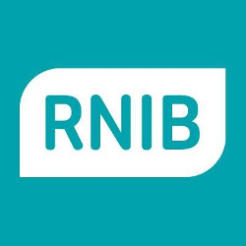RNIB has rejected as "absurd" claims in the British Medical Journal that it was pressured by a pharmaceutical company to block a clinical trial of a drug that, it is claimed, could save the NHS millions.
The BMJ has alleged that pharmaceutical company Novartis tried to prevent experts in the UK from taking part in the trial of Avastin, a cancer drug which some claim could also treat the common eye disorder, wet age-related macular degeneration (AMD).
Avastin would be a lot cheaper than the current treatment for AMD, ranibizumab, which is produced by Novartis in Europe.
The BMJ suggested that the challenge against the trial would come from the RNIB, on behalf of the drug company, because RNIB wanted to protect its funding from Novartis.
RNIB has received some sponsorship from Novartis, to run a project in partnership with the Macular Society.
The RNIB has stated that it does oppose the trial, but not for the reasons outlined in the BMJ investigation. Rather, it does not agree with the way the trial is designed.
Alex Foss, chief investigator of the drug trial which is being run by Nottingham University’s clinical trials unit, told the BMJ that “Novartis could rely on the RNIB to lodge formal ethical objections and to orchestrate a protest against it”.
The BMJ said that when this was put to RNIB, the RNIB said it “does not support” the design of the trial.
RNIB's response
In a statement released today, RNIB said: “To suggest that a pharmaceutical company can ‘rely’ on RNIB to raise concerns regarding a clinical trial, is absurd. We cannot comment on an alleged conversation in a pub between two acquaintances who were not associated with RNIB in any way.”
The statement from RNIB continued: “The reason we raised an ethical challenge to the Tandem trial is because we believe it takes unnecessary risks with patients’ eyesight, which could ultimately lead to them going blind. Wet AMD can develop extremely quickly, sometimes leading to complete sight loss within three months.
“The design of the Tandem trial means that some patients might receive dosages which are so low they won’t be effective, by this point it could be too late to save their sight. We feel strongly that this is unacceptable.”
“However, we actively supported the IVAN trial which we felt was well-designed and would provide valuable evidence on the use of Avastin in the eye. We worked closely with leading clinicians on patient information and supported recruitment for the trial.”
The statement continued to say that RNIB does receive funding from some pharmaceutical companies, which help it to fund specific projects to raise awareness of sight loss and eye health, but that this represents less than 0.3 per cent of RNIB’s total annual income.
RNIB added: “It is incorrect to suggest that these contributions have any impact whatsoever on our independence and impartiality, which are of utmost importance to us. We have strict policies in place to ensure these relationships are managed appropriately, and are fully compliant with the ABPI Code of Practice.”
RNIB said it has reviewed its findings of various studies which have researched the efficacy and safety of Avastin. However, it still has a number of concerns “regarding the safe use of Avastin specifically relating to storage, dosage and monitoring which have not been addressed in these studies and which could pose a risk to patients’ health.”
It says, for example, “research suggests that Avastin could cause an adverse reaction in patients with cardiovascular problems, however, because Avastin is not licensed for use in the eye, there is no official guidance in place regarding this risk.”
RNIB added that it is “committed to speaking out on behalf of patients to ensure they have access to safe, effective treatments and that their safety is not compromised”.
A spokesperson for Novartis told the BMJ: “Novartis is committed to high standards of ethical business conduct and has a comprehensive compliance program in place to help ensure we consistently act in a responsible manner. Novartis will not tolerate unethical behaviour by its associates in any country and we take all necessary steps to ensure compliance with the Company’s Code of Conduct and all applicable laws.”










